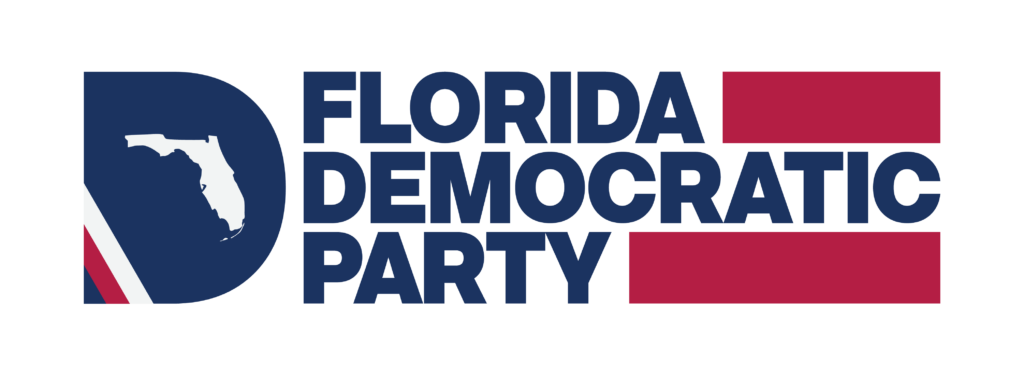In the News
As Sessions Visits Tallahassee, DeSantis Appears to Endorse Trump’s Dog Whistle on Executions


As Sessions Visits Tallahassee, DeSantis Appears to Endorse Trump’s Dog Whistle on Executions
Donald Trump’s solution to the opioid crisis? Executions. That’s right. In a speech earlier this week President Trump said that one way to solve the opioid crisis that has devastated Florida is to simply kill drug dealers. It was a cruel — and bizarre — policy proposal that has been criticized as a racial dog whistle and shows how little the Trump administration actually cares about helping Floridians struggling with substance abuse.
Despite the outcry, Congressman Ron DeSantis has endorsed the President’s position — saying in a Facebook post that “I support President Trump’s strong stance in combating the low-life trash who peddle these pills, both internationally and domestically.” The post linked to a Fox News article that reported that President Trump “brandished the death penalty as a fitting punishment for traffickers.”
Gubernatorial candidate Adam Putnam has been more circumspect but has refused to come out against the President’s plan. Asked by Florida Politics about the President’s execution plan, Putnam “smirked” and said “we need to be as aggressive as we possibly can.”
The Washington Post reported yesterday that “President Trump’s proposal to execute serial drug dealers has attracted “significant criticism from those aware of how disproportionately people of color are sentenced to execution.”
By Eugene Scott
President Trump’s proposal to execute serial drug dealers has attracted significant criticism from those aware of how disproportionately people of color are sentenced to execution.
In his speech this week on the opioid epidemic, the president suggested the Justice Department pursue capital punishment sentences for people who illegally sell narcotics that cause deaths.
“If we don’t get tough on the drug dealers, we are wasting our time. And that toughness includes the death penalty,” said the president on Monday when speaking at an event in New Hampshire, a state Trump referred to as a “drug-infested den” during the campaign.
Trump went on to say that the death penalty would be for “the big pushers, the ones that are really killing so many people.”
This suggestion isn’t surprising for a president who often reportedly compares drug dealers to serial killers in private, and therefore believes they deserve to be executed. The United States has never executed someone for a drug offense, according to a March report from Harm Reduction International.
Trump’s specific proposal remains uncertain since no details have been provided yet.
What is certain is that data shows that African Americans are overrepresented in the country’s execution chambers. Although they make up 12 percent of the U.S. population, they represent 34 percent of those executed since the 1970s, according to “Death Row USA,” a report by the NAACP Legal Defense Fund.
Those critical about the implications of the War on Drugs for people of color are expressing their concerns — especially as Trump continues to praise Philippines President Rodrigo Duterte and other leaders who execute drug dealers.
Rep. Yvette D. Clarke (D-N.Y.) said that Trump’s proposal, while concerning, was not surprising.
“His response to a whole host of policy challenges have been extremely regressive. There has been such a sort of undertone of racist policies that I wasn’t shocked at all. Here we are in the 21st century facing another substance abuse crisis and the go-to for Donald Trump is ‘We’re going to use the death penalty as a deterrent’ when we know that the death penalty has never been a deterrent,” Clarke said.
Clarke said some worry that this proposal could hit people hardest who cannot afford to defend themselves in court.
“It was communities of color that paid a disproportionate price during that epidemic,” Clarke said of the War on Drugs. “If past is prologue, I don’t see, particularly given this administration and their pronouncements and things that they have said with regards to racial division, why that wouldn’t be the case now.”
While most Americans have soured on the death penalty, Trump has suggested the punishment after mass shootings, military desertions and, in one controversial case, a brutal attack on a jogger in Central Park, which involved the arrest of five teenagers who were later exonerated.
Journalist Jamil Smith suggested in Rolling Stone that Trump’s approach may be rooted in further establishing his global reputation.
“Using state power to kill accused criminals has long been a fascination of Trump’s, as the Central Park Five can attest. It isn’t surprising that someone like Trump, who exhibits a kind of poisoned masculinity in so many arenas, thinks that he can kill his way to appearing tough,” Smith wrote.
This strongman approach is actually an attraction to some Trump supporters.
When Trump spoke about the need for the death penalty Monday, he got a standing ovation. But the policy may not serve him well outside his base.
While commentary on the opioid epidemic often focuses on rural communities, The Fix has written previously about how many people of color in urban communities have been devastated as well.
A recent Centers for Disease Control and Prevention breakdown revealed that the death rate from opioids is rising most steeply among black Americans, particularly in urban areas.
Critics of the president have accused him of not being sensitive to how various issues and policies impact particular races and communities differently. They see this as just the latest example.


